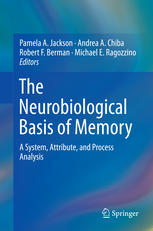

Most ebook files are in PDF format, so you can easily read them using various software such as Foxit Reader or directly on the Google Chrome browser.
Some ebook files are released by publishers in other formats such as .awz, .mobi, .epub, .fb2, etc. You may need to install specific software to read these formats on mobile/PC, such as Calibre.
Please read the tutorial at this link. https://ebooknice.com/page/post?id=faq
We offer FREE conversion to the popular formats you request; however, this may take some time. Therefore, right after payment, please email us, and we will try to provide the service as quickly as possible.
For some exceptional file formats or broken links (if any), please refrain from opening any disputes. Instead, email us first, and we will try to assist within a maximum of 6 hours.
EbookNice Team

Status:
Available4.4
28 reviewsThis exciting volume offers an up-to-date tour of current trends in the neurobiology of memory while saluting Raymond Kesner's pioneering contributions to the field as a theorist and researcher, teacher and mentor. Starting with his signature chapter introducing the Attribute Model of Memory, the first half of the book focuses on the central role of the hippocampus in processing dimensions of space and time, and branches out to memory system interactions across brain structures. Later chapters apply the attribute model to multiple functions of memory in learning, and to specific neurological contexts, including Huntington's disease, traumatic brain injury, and Fragile X. As a bonus, the book concludes with an essay on Kesner's life and work, and reminiscences by colleagues.
Among the topics covered:
· Prefrontal cortex and basal ganglia attributes underlying behavioral flexibility.
Cognitive neuroscientists, neuropsychologists, gerontologists, psychiatrists, and neurobiologists will find The Neurobiological Basis of Memory both enlightening and inspiring--much like Kesner himself.